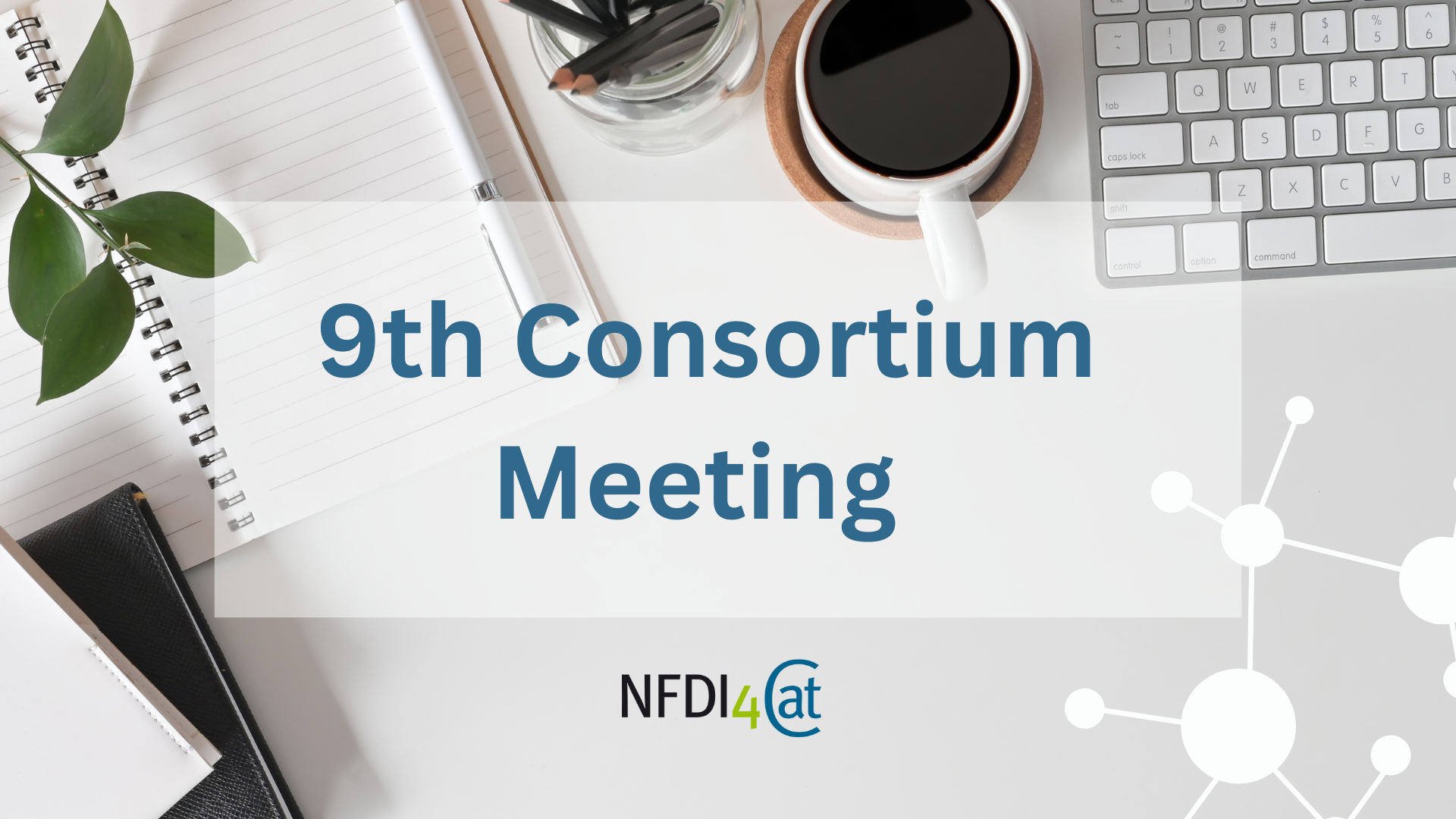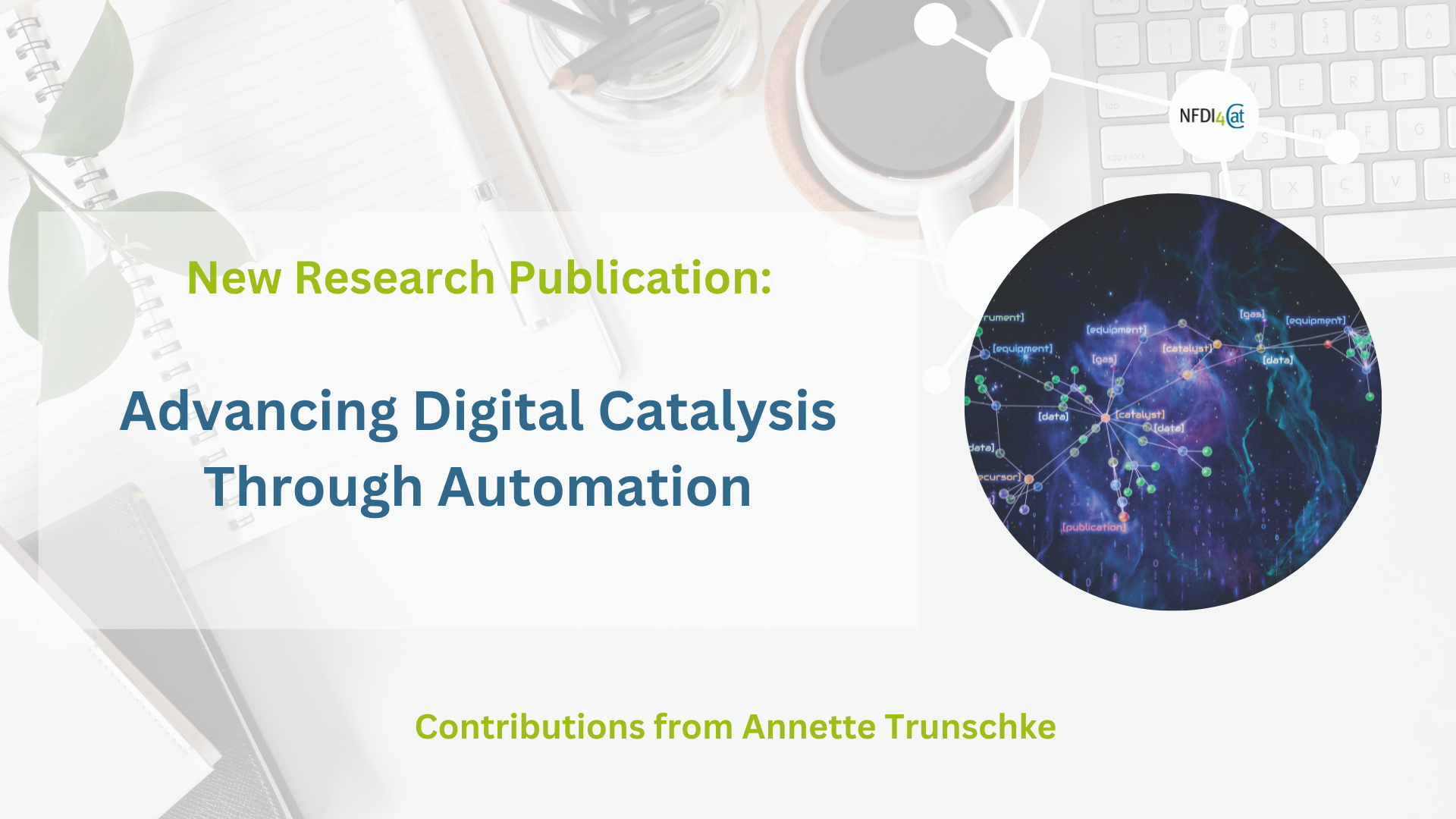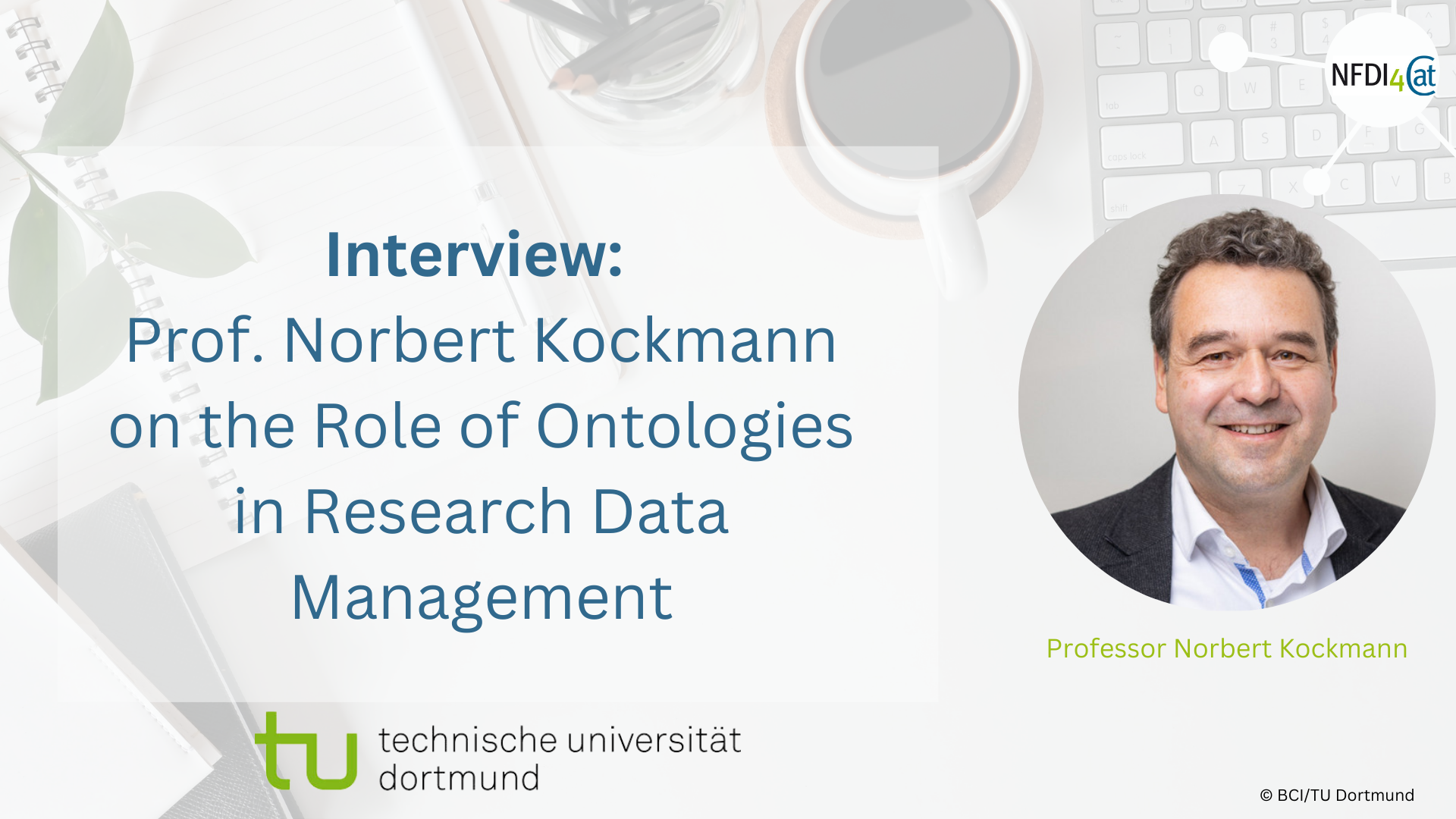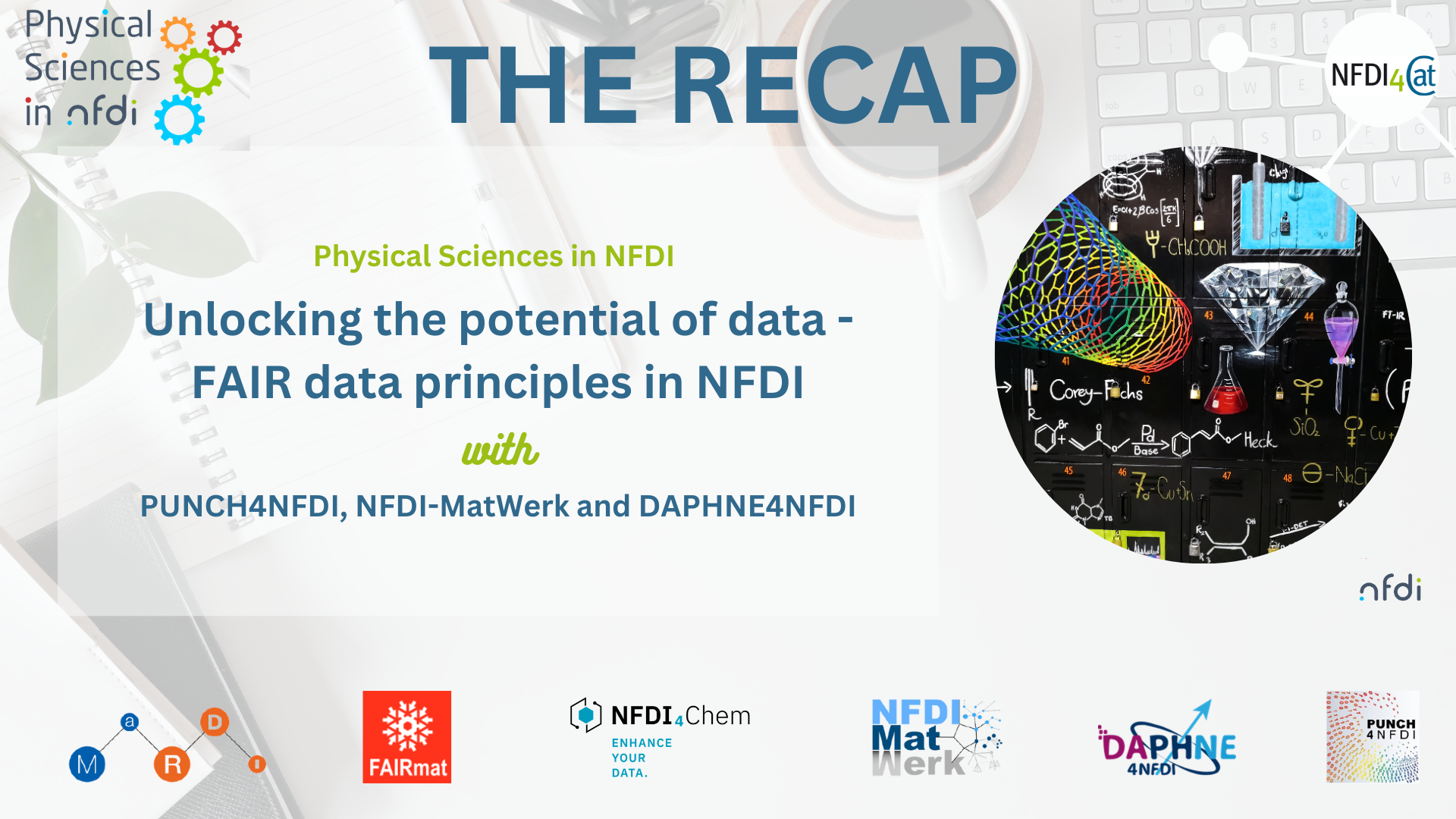On April 29, 2025, the NFDI4Cat community gathered for the 9th and final consortium meeting of the current funding phase. The event provided a rich exchange of project insights, technical developments, and opportunities for future collaboration.
🔗 Full documentation and presentation slides are available in the Repo4Cat.
Highlights from the Task Areas
🧩 Task Area 1 – Ontology Development & Metadata Standards
Speaker: Norbert Kockmann
Voc4Cat and Reac4Cat continue to evolve, with a strong focus on interoperability and cross-consortium integration. A key challenge remains the alignment of domain-specific ontologies.
🔗 Slides in the repo
🔍 Task Area 2 – Data Standards, Data Collection & Interfaces
Speaker: David Linke
Presented structured data tools (CaRMeN, CaRIn, Adacta), semantic modeling with LinkML, and a newly developed RDM desktop application.
🔗 Slides in the repo
🔬 Task Area 3 – Data Analysis, Quality Management & Re-Use
Speaker: Michael Geske
Showcased ML workflows for catalyst design and their integration into Repo4Cat, including industrial use cases like CarboDiol.
🔗 Slides in the repo
🌐 Task Area 4 – Linked Extensible Infrastructure & Access Management
Speaker: Thomas Bönisch
Repo4Cat, pid4cat, TRIQ, and Meta4Cat are now fully operational. Integration with IAM4NFDI and sustainability measures are progressing.
🔗 Slides in the repo
🎓 Task Area 5 – Dissemination, Outreach & Training
Speaker: Michael Liebau
The RDM School of Catalysis has trained over 350 participants. A whitepaper on Open Data in Catalysis is currently in preparation.
📣 Interested in joining the next edition? Find more info here.
🔗 Slides in the repo
Tools & Services Spotlight
-
Voc4Cat (Nikolaos G. Moustakas): A domain-specific vocabulary system for catalysis research, managed via GitHub. Future enhancements include AI-powered editing assistants.🔗 Slides in the repo
-
pid4cat (David Linke): A persistent identifier solution supporting rich metadata and integration with the Handle system and the PID Graph.
🔗 Slides in the repo -
TRIQ (Taras Petrenko): A semantic metadata creation tool using a user-friendly decision-tree-based interface.
🔗 Slides in the repo -
Meta4Cat (Sonja Schimmler): A central metadata aggregation and discovery portal built on the TIB PEWI framework, integrating multiple NFDI consortia.
🔗 Slides in the repo -
Repo4Cat (Volodymyr Kushnarenko): The central repository for catalysis-related research data with integrated services and growing community engagement.
🔗 Slides in the repo
Guest Talks & Community Topics
-
Base4NFDI (Martin Reinhardt): Showcased how NFDI4Cat can align with shared services like IAM4NFDI, training platforms, and evaluation structures.
🔗 Slides in the repo
-
RDMTraining4NFDI (Mareike Wohltmann): Highlighted the development of modular content, certification models, and community engagement strategies.
🔗 Slides in the repo -
DCAT-AP-Plus (Hendrik Borgelt): Presented an enhanced metadata schema for experimental context.
🔗 Slides in the repo -
RDM Teaching Flyer (Stefan Jopp): An introductory guide aimed at students and early career researchers.
🔗 Slides in the repo -
Carbo-Diol Use Case (Franziska Flecken): Demonstrated RDF modeling and real-world integration of NFDI tools.
🔗 Slides in the repo
Thank You for Five Years of Progress!
A sincere thank-you to all contributors for five years of progress, innovation, and collaboration. We look forward to seeing you at the NFDI4Cat Summit on October 22–23 in Frankfurt!











